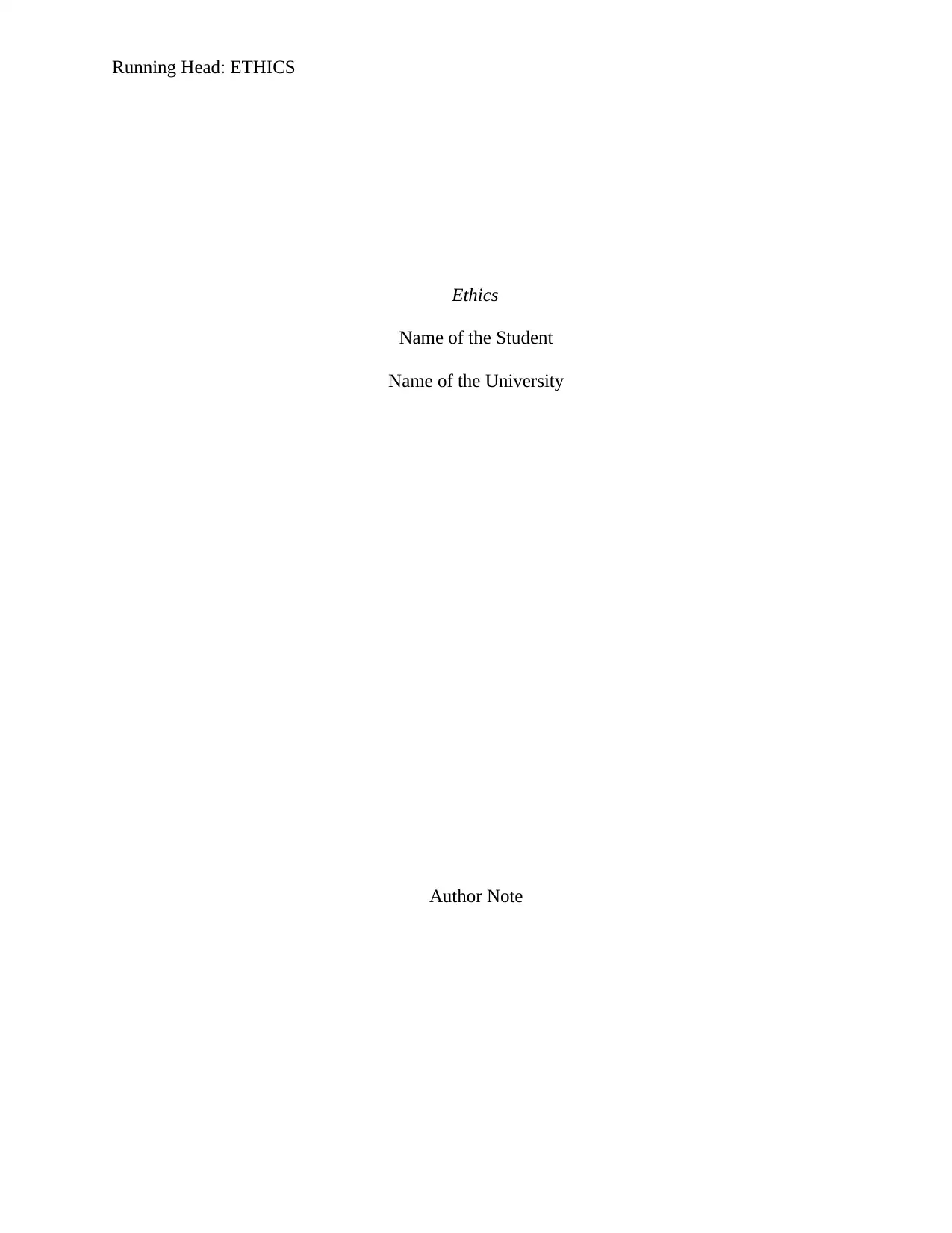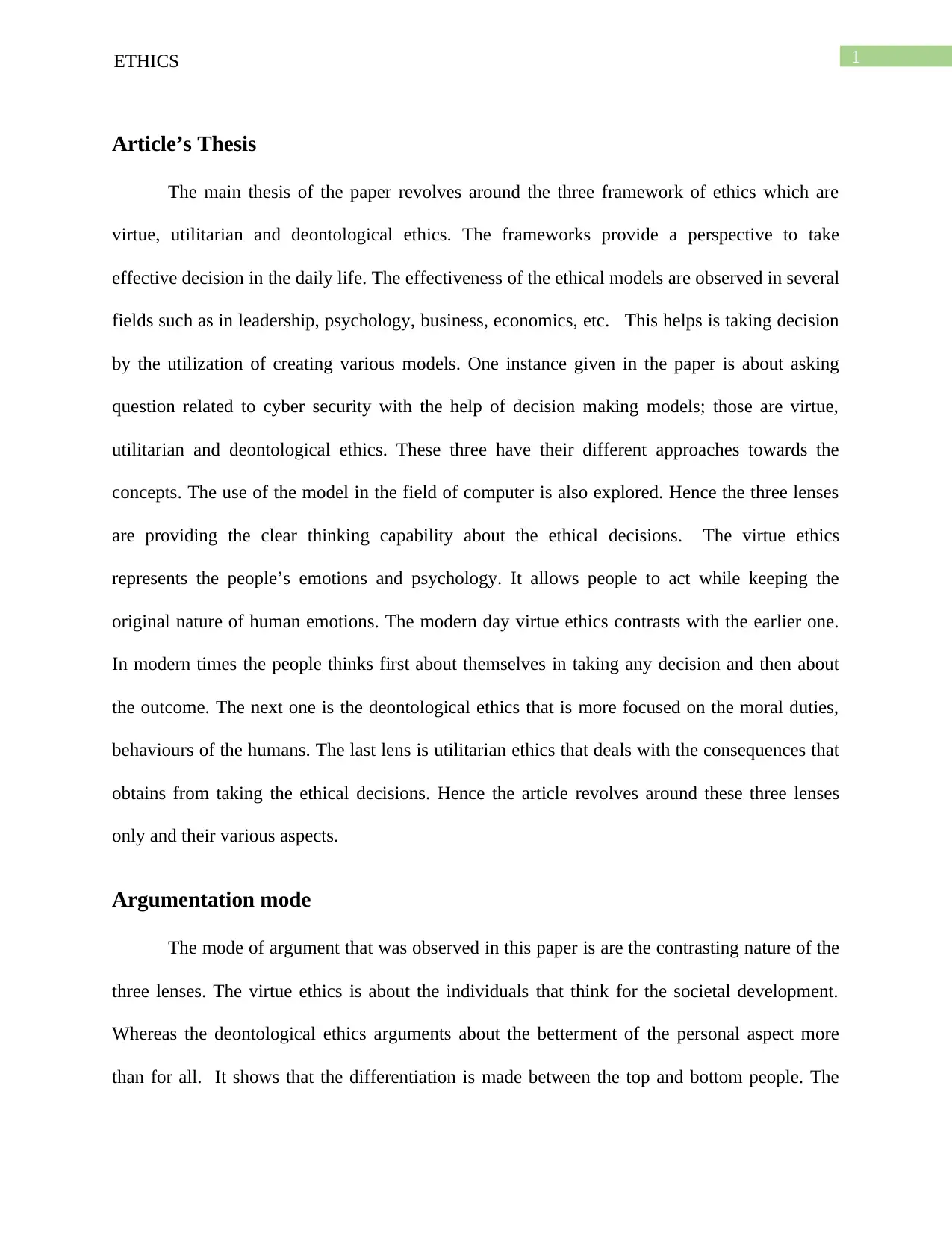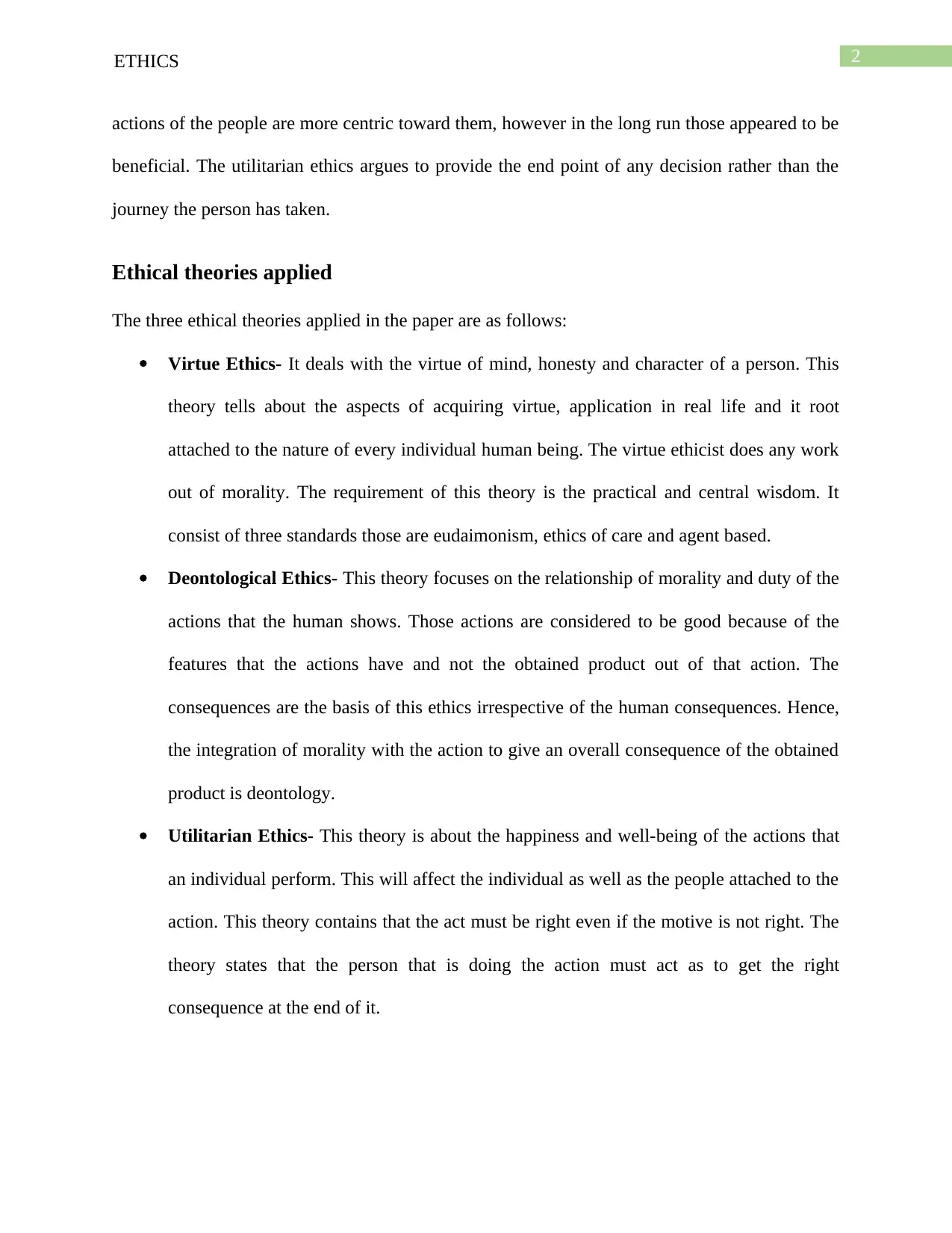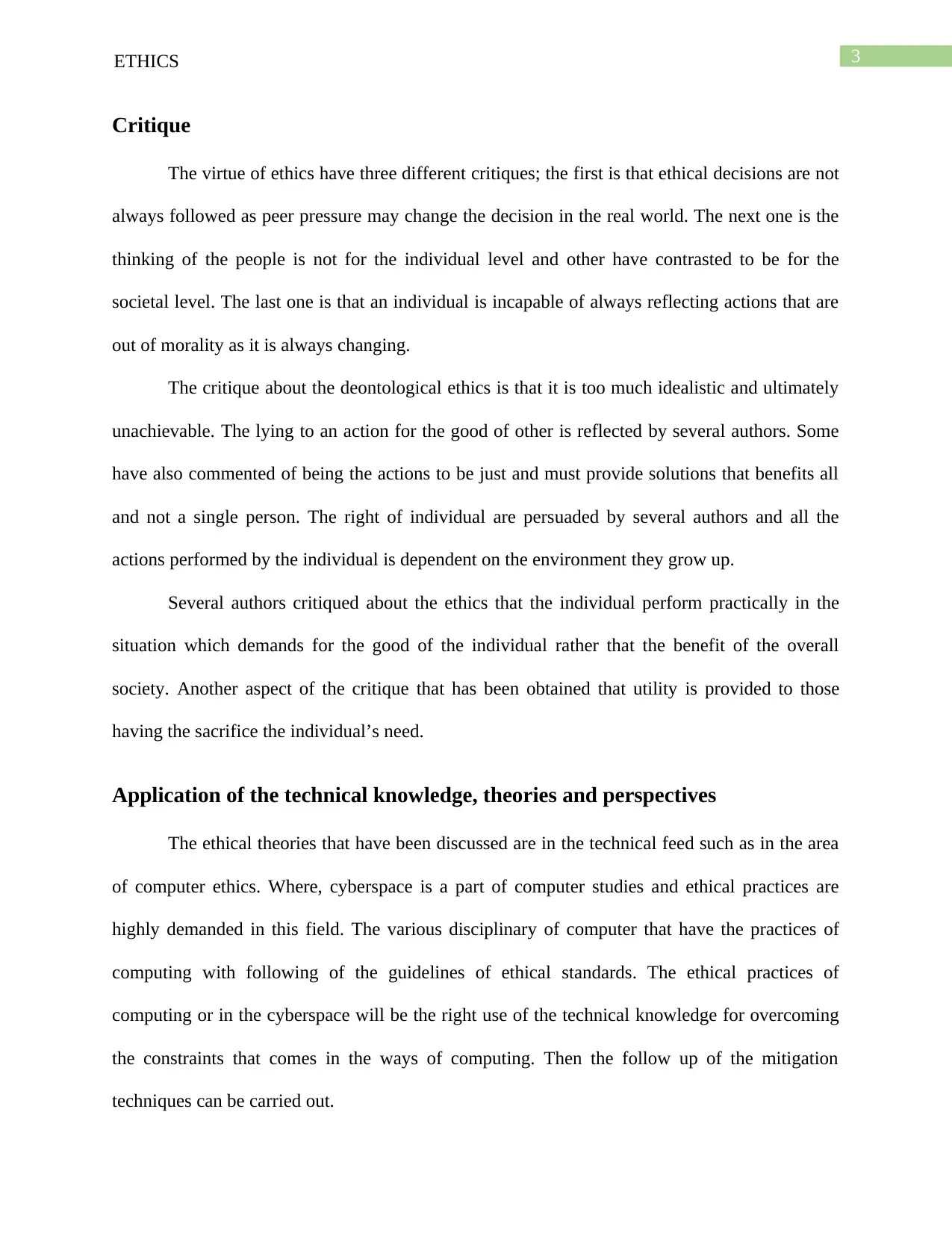Ethics: Analysis of Virtue, Utilitarian, and Deontological Frameworks
VerifiedAdded on 2022/08/17
|4
|970
|17
Essay
AI Summary
This essay provides a detailed exploration of three key ethical frameworks: virtue ethics, utilitarian ethics, and deontological ethics. It examines each framework's core principles, including virtue ethics' focus on character and emotions, deontological ethics' emphasis on moral duties, and utilitarian ethics' concern with consequences and overall well-being. The essay contrasts the different approaches, highlighting the individual-centric nature of virtue and deontological ethics versus the outcome-oriented nature of utilitarian ethics. It also discusses the application of these theories in various fields such as leadership, psychology, business, and computer ethics, particularly in the context of cyberspace and ethical computing practices. The essay further provides critiques of each ethical framework, addressing potential limitations and challenges in real-world application. It demonstrates how these ethical lenses offer clear perspectives on ethical decision-making and the practical use of technical knowledge.
1 out of 4










![[object Object]](/_next/static/media/star-bottom.7253800d.svg)